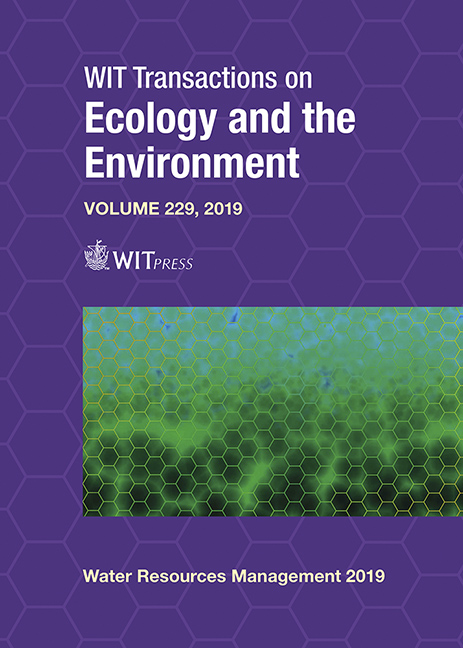INTERNALIZATION ANALYSIS OF ENVIRONMENTAL COSTS OF WASTEWATER TREATMENT IN THE VALENCIAN COMMUNITY, SPAIN
Price
Free (open access)
Transaction
Volume
229
Pages
10
Page Range
57 - 66
Published
2019
Paper DOI
10.2495/WRM190061
Copyright
WIT Press
Author(s)
MARCOS GARCÍA LÓPEZ, BORJA MONTAÑO SANZ, JOAQUÍN MELGAREJO MORENO
Abstract
The need for water resources currently demands the development of measures to improve the management of these resources and increase their availability. However, these measures have an environmental impact that must be considered when carrying them out. The Water Framework Directive establishes that the economic and environmental costs of the activities carried out must be recovered, because this is necessary to ensure the sustainability of these activities and the continuity in the use of natural resources. The purification and reuse of wastewater is an activity within the framework of the circular economy that intends to reduce the environmental impact of contaminated water discharges and to increase the available resources. The problem is that this activity, being part of the production process, is linked to an environmental impact due to the use of chemical components, the construction of the facilities and, especially, the intensive energy consumption of the purification stations, since part of the energy comes from non-renewable sources. This environmental impact must be internalized in the cost structures through additional measures to mitigate it, so the objective of this paper is to determine the state of such internalization. Analyzing the costs of purification stations, the annual report of the EPSAR (Public Entity for Wastewater Sanitation of the Valencian Community) and the reports of the Hydrographic Confederations of Júcar and Segura, we can determine that there is no internalization in the stations, it is low in the EPSAR but increasing with time and for the Confederations the situation is complicated, as they cannot even recover their financial costs and the creation of several additional measures has been suspended. Finally, it has been found that there are economies of scale in terms of energy consumption of this activity, as well as significant potential energy savings during the purification process.
Keywords
wastewater treatment, water reuse, environmental impact, environmental cost, energy cost, costs internalization, Valencian community





